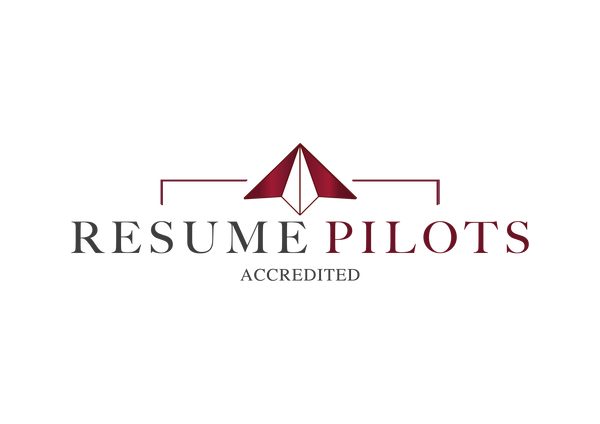
How To List Online Courses on Resume & 5 Reasons You Should
Why mentioning online courses on your resume can help you stand out
As the US job market became increasingly competitive during lockdown, many people turned to online courses to differentiate themselves from similar applicants.
It’s a smart strategy!
Online courses and certificate programs are an excellent way to build your skills and make yourself more marketable to employers.
If you’re looking to switch careers, online courses can be especially helpful in getting your foot in the door.
The best part?
You can study exactly the topics you need on your own time for free or for a small fee, without shelling out $100K+ for an MBA.
In this article, we explain:
- Why you should include online courses on your resume
- How to select online courses that match your career objectives
- Where to list online courses on your resume
- Where to find reputable online course providers
Why should I include online courses on my resume?
Clients often ask us whether including an online course on their resumes is a good use of space.
While we don’t recommend taking several courses just to beef up your resume, pursuing relevant courses accomplishes the following:
1) Demonstrates that you actively pursue career growth and development, signaling that you’ll likely be an engaged employee
2) Allows you to learn new skills and hone existing skills, making you more effective on the job
3) Enables you to differentiate yourself from similar applicants, increasing your chances of landing interviews
4) Serves as a natural way to incorporate relevant keywords, helping your resume pass ATS scans
5) Provides a productive way to fill a career gap, showing that you still prioritized your career during your time off
Which online courses should I take?
You should select online courses that match your career objectives.
To best explain what we mean, we’ll consider two scenarios: jobseekers who are looking to grow in their current roles and jobseekers who are looking to switch careers.
Jobseekers looking to grow in current role
If you are looking to grow in your current field, you’ll want to select courses that allow you to be more effective on the job.
For example, if you are a business analyst and often work with spreadsheets, you might consider courses that teach you how to:
- Create models that your team can use to quickly consolidate data
- Pull data from your company’s data warehouse using SQL
- Write VBA programs to run automated macros
By building these skills and applying them on the job, you’ll effectively position yourself for a promotion.
If you’re more senior and have recently started leading your own team, you might consider courses that hone your leadership skills.
As a result, you’ll be more confident in your management abilities manage your team more effectively.
Jobseekers looking to switch careers
If you are looking to switch careers, online courses can be especially helpful because they will:
1) Demonstrate that you are serious about pursuing the career change – not just trying to test the waters
2) Prepare you to hit the ground running – especially if you are entering a technical role
3) Enable you to position your resume effectively
The third point we mentioned can be key.
Career-switchers often struggle to land interviews because recruiters don’t see their experience as related to the role they’re recruiting for or their resumes get filtered out by ATS (due to a lack of relevant keywords).
Online courses can help you naturally add the relevant keywords into your resume.
For example, if you are working in sales and want to pursue a role in real estate finance, you might struggle to incorporate phrases with real estate-related keywords such as:
- Leveraged Excel to create underwriting models…
- Analyzed lending risks for new investment opportunities…
- Prepared deal summary memorandums…
- Researched real estate market trends…
Without demonstrating that you are both familiar with industry terminology and able to fulfil the position requirements, you likely won’t land an interview.
A candidate looking to transition to real estate, for example, might consider the following options whose titles include target keywords:
Modeling Risks and Realities from The Wharton School of the University of Pennsylvania on Coursera (free)
Socially Responsible Real Estate Development from MIT on edX (free)
Commercial Real Estate Certificate from Cornell University’s eCornell (paid)
Where should I list online courses on my resume?
We recommend listing online courses in the Certifications or Professional Development sections on your resume.
You can add them to your resume by:
1) Listing the course titles and providers
2) Writing one or two bullet points summarizing what you learned in the course
Some people list online courses in the Education section.
We don’t recommend doing so because it can detract attention from your degree programs, which you should highlight more prominently.
Recruiters we work with have also pointed out an increasing trend of people making it seem like they graduated from “Cornell University” when they only took a two-week online course.
As such, it’s important to be transparent and make the nature of the course you took clear.
Recruiters know that many prestigious universities offer online courses and recognize their value.
However, a free MIT online course is simply not the same thing as earning a degree from MIT.
By separating your Education from your Certifications or Professional Development, you’ll avoid any confusion or appearance of manipulation.
Who are the best online course providers?
You should be able to find both free and paid online courses relevant to your niche.
Free online course providers to consider include:
Coursera
Coursera offers free courses from top universities such as Stanford, University of Pennsylvania, Duke, Imperial College London, University of Michigan, and Google.
The website claims that "87% of people learning for professional development report career benefits like getting a promotion, a raise, or starting a new career" (Coursera Learner Outcomes Survey 2019).
edX
edEx is another reputable online course provider, with free options from MIT, Harvard, University of California – Berkeley, and Boston University.
You'll find over 2,500 courses spanning computer science, foreign languages, data science, engineering, business, and humanities.
Paid online course providers to consider include:
eCornell
eCornell offers certificate programs for hospitality management, real estate, data science, healthcare, and project management.
Harvard Business School Online
Harvard Business School Online courses cover topics including business analytics, strategy, entrepreneurship, financial accounting, leadership, and negotiations.
In Summary
Whether you're looking to grow in your field or switch careers, online courses can help get your foot in the door.
To find out more, visit our website www.resumepilots.com. If you have any further questions, you can either book a consultation call with one of our team, or get in touch via email on team@resumepilots.com

